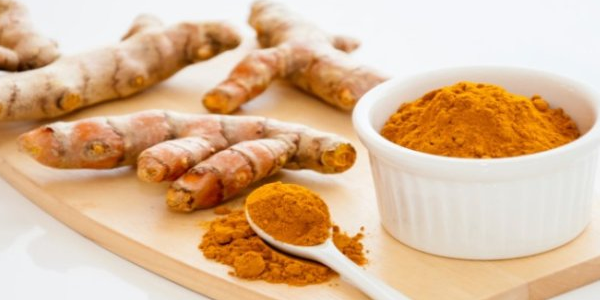Health Benefits of Turmeric: Uses & Properties
Turmeric is an aromatic spice that is used in cooking to flavor different dishes, however, its properties and health benefits have not gone unnoticed and this is why we want you to explore the health benefits, use and properties of Turmeric.
In the last 40 years, more than 5,000 articles have been published on turmeric or its components. Most respond to in vitro research or on animal experimental models, although more and more clinical studies are being done with people.
A good part of the properties attributed to turmeric (anti-inflammatory and anti-cancer, for example) are due to its antioxidant action. And more specifically to the action of curcumin, a phenolic compound that contains the rhizome of the plant and that is better assimilated when accompanied by black pepper and some fat.
Read Also: Health Benefits of Moringa: Uses & Properties

PROVEN HEALTH BENEFITS OF TURMERIC
If well assimilated, curcumin fights tissue oxidation, reducing irritation and deterioration. Hence, the efficacy of this medicinal root against inflammatory and neurodegenerative disorders.
But its properties are many. Traditional medicine has used it for all kinds of disorders, from disinfecting wounds to treating colds, eczema or stings. Let’s see below the scientifically proven properties so far.
1. HELPS FIGHT CANCER
Studies show that curcumin reduces the appearance of cancer cells in the mouth, skin, and intestines. So much so that it is considered a potential cancer chemopreventive agent. It also facilitates premature cancer cell death and is capable of inhibiting metastases in numerous tumors.
Breast cancer is one that best meets curcumin. It can be used as a complement to chemotherapy, as it enhances the effectiveness of taxol and has an action similar to tamoxifen (both common drugs in this type of cancer).
2. RELIEVES OSTEOARTHRITIS
Curcumin acts on inflammation mediators, such as leukotrienes, neutrophils, platelet aggregation, and COX enzyme activity. Its anti-inflammatory action is considered to be comparable to that of ibuprofen or phenylbutazone in the treatment of conditions such as arthritis.
Turmeric activity approximates “COX2 inhibitor” anti-inflammatory drugs such as etoricoxib, but without its side effects.
It cannot be said that turmeric as a condiment is totally effective in painful crises. In this case, in addition to the spice in meals, turmeric extract capsules with 95% curcuminoids and compounds that increase their bioavailability are indicated.
3. REDUCES INFLAMMATION OF INFLAMED ORGANS
Due to its anti-inflammatory action, turmeric is also indicated in other processes that affect organs, such as inflammatory bowel disease, inflammation of the ocular cornea, pancreatitis or irritable bowel.
4. IT IS DIGESTIVE AND FAT BURNING
Added to stews, turmeric facilitates fat metabolism by improving the quantity, quality and flow of bile. For this reason, it is recommended when cholesterol is high or in cases of diabetes. In healthy people, it is an excellent digestive with foods that are especially fatty.
It must be said that various studies have failed to cause a significant reduction in cholesterol with the administration of turmeric or curcumin. However, the effect of high doses on triglyceride levels is somewhat greater, without being very significant.
If we carry out a weight loss regimen, turmeric mobilizes and helps “burn” fat.
5. PROTECT THE BRAIN
Alzheimer’s disease whose cause is unknown, involves chronic inflammation of the central nervous system. The usual treatment includes the use of anti-inflammatory cyclooxygenase inhibitors.
The consumption of turmeric improves the quality of brain tissue and reduces the progression of Alzheimer’s.
It can also be useful in the adjunctive treatment of other neurological conditions such as Parkinson’s. In these types of disorders, it is important that the patient does not take more drugs than necessary. Adding curry to your dishes is recommended both for its anti-inflammatory effects and because it stimulates the sense of taste, which is often affected by neurological disease.
Turmeric can also help against mood disorders. A study on 60 patients with a psychotic and suicidal tendency observed a positive evolution that could be related to the effect of curcumin on the monoamine-type nerve pathways, determinants of mood, and the stimulation of the pituitary-hypothalamic-adrenal axis, which controls reactions to stress.
6. GOOD FOR THE EYES AND SKIN
The nerve cells of the eye are loaded with pigments, and curcumin, possibly because it is a pigment, is very useful for macular degeneration. This is a disease typical of old age, in which the macula – a very sensitive part of the retina – begins to degrade and lose its ability to perceive.
Well, curcumin regenerates the so-called “retinal purple”, involved in the perception of colors and in low light conditions.
Now, turmeric does not act only from within the body. It is also capable of doing it through the skin. For this reason, it is indicated for the healing of ulcers and wounds, and as a rejuvenating agent.
There are studies that suggest a beneficial action on psoriasis, scleroderma, and premalignant or malignant skin lesions.
The oleoresin that remains after pigment extraction, applied to the skin, also produces good results in patients with fibrosis (development of excess tissue due to inflammatory causes). It has also been found useful as a fungicide, insecticide or insect repellent.
Read Also: 10 Health Benefits Of Garlic: Uses & Properties
HOW TO ENHANCE THE ABSORPTION OF TURMERIC
There is no doubt that there are plenty of reasons to use turmeric regularly. And its excellent flavor and color are also compelling reasons!
However, isolated curcumin is not well assimilated by the body. It is not well absorbed and does not reach the tissues, so it cannot act and is quickly eliminated. In fact, in animal studies it has been shown that, even if high doses are administered (1g per kilo of weight), it does not reach the blood plasma.
Therefore, it will be of little use to take it if you do not take into account some tips on how to promote its assimilation:
- Without isolation and with a fat: The whole turmeric, that is, the rhizome, is better assimilated than isolated curcumin, since even the dry powder of the rhizome preserves the fat part that facilitates this assimilation. It can also be easily combined with olive oil, coconut oil or other vegetable fats.
- Mixed with black pepper: It is a good idea to use black pepper at the same time as turmeric. Thanks to the action of piperine, its spicy compound, absorption increases an average of 158%.
PRECAUTIONS
Finally, a caution: curcumin may be contraindicated when taking anticoagulant or antiplatelet drugs such as aspirin or heparin.
Otherwise, it is a safe substance: its side effects are few. Only in very high doses can it cause heartburn and other mild gastrointestinal disturbances. Also, turmeric is not contraindicated during pregnancy.
You might want to share the health benefits of turmeric with your friends and relatives, kindly use the share button below this article.







